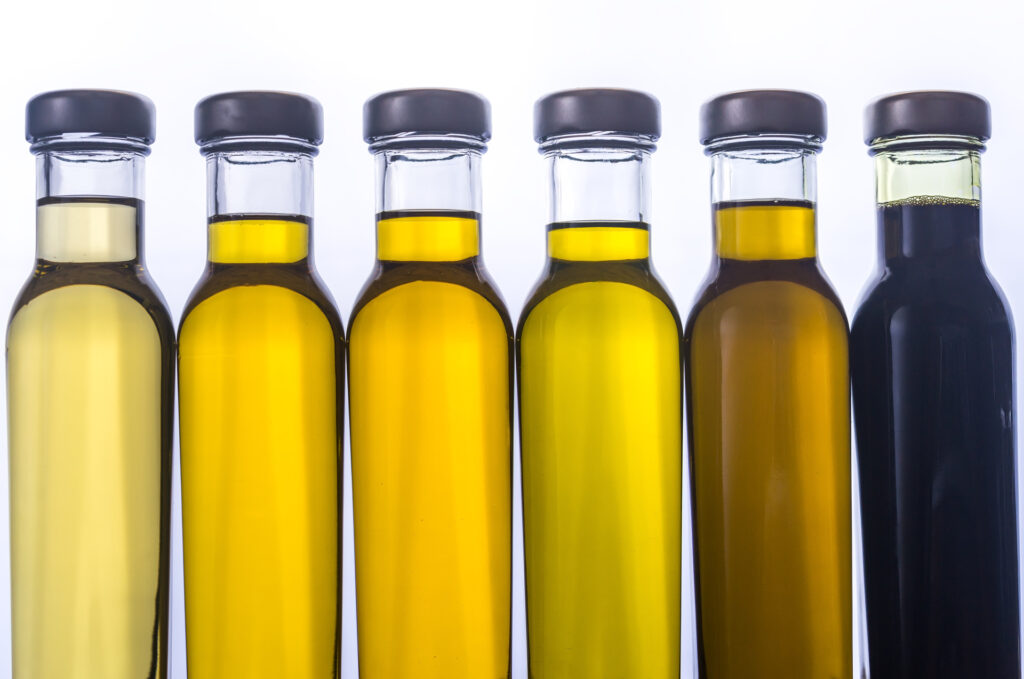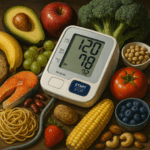In the quest for the best cooking oil to lower blood pressure, we learnt that small but regular choices can mean the difference between good health and serious risk. One of the most important choices you make each day is the oil you cook with. At Global Hypertension Awareness (GHA), a Danish nonprofit behind this blog, we decided to find out: which cooking oil actually helps lower blood pressure the most?
Why Cooking Oil to Lower Blood Pressure Matters
Oils are not just fat. They are active substances. They interact with your blood vessels. They can either help them relax or make them stiff. A relaxed blood vessel means lower blood pressure. A stiff one means higher risk.
Scientists already knew that some oils contain more “unsaturated fats.” These are healthier fats. They help lower the amount of bad cholesterol in the blood. Bad cholesterol, also called LDL (Low-Density Lipoprotein), can make blood vessels narrow and stiff. When that happens, blood pressure rises.
Our Experiment with Cooking Oil to Lower Blood Pressure
We tested five popular cooking oils: olive oil, sunflower oil, canola oil, coconut oil, and butter. We used each oil for two weeks while keeping everything else the same. We measured blood pressure every morning and evening with a medical-grade monitor.
Before starting, the average blood pressure was 138/86 mmHg. “mmHg” means millimeters of mercury, the standard way to measure pressure inside arteries.
Each two-week period was separated by a full week without any oil change, so the previous oil’s effects would not mix with the next one.
What We Found With Each Cooking Oil
When using butter, blood pressure rose to 142/88 mmHg. Butter is high in saturated fats. Saturated fat hardens arteries over time. This was not surprising but still disappointing.
Coconut oil was next. Many articles online claim coconut oil is a health food. But in our case, blood pressure stayed high at 140/87 mmHg. Coconut oil also contains a lot of saturated fats, although of a different type called medium-chain triglycerides. These are easier to digest, but they did not help blood vessels relax.
With sunflower oil, we saw a small improvement. The average blood pressure went down to 136/84 mmHg. Sunflower oil is rich in Vitamin E, which protects cells from damage. It also has omega-6 fatty acids. These can lower cholesterol, but too much omega-6 without omega-3 can cause inflammation. Inflammation can stiffen blood vessels.
When we tried canola oil, blood pressure dropped a bit more, reaching 134/82 mmHg. Canola oil contains a good balance of omega-3 and omega-6 fatty acids. Omega-3 fatty acids are essential fats that help widen blood vessels and lower inflammation.
Finally, we switched to extra virgin olive oil. And here, something changed. Within two weeks, blood pressure fell to 128/79 mmHg. That is a normal reading.
Why Olive Oil Is the Best Cooking Oil to Lower Blood Pressure
Olive oil, especially extra virgin, is packed with polyphenols. Polyphenols are natural plant compounds. They have strong antioxidant effects, which means they protect your cells from damage. One important polyphenol in olive oil is called oleuropein. It improves the flexibility of blood vessels.
Olive oil also contains a lot of monounsaturated fats. These fats help raise HDL cholesterol. HDL (High-Density Lipoprotein) is the “good” cholesterol. It helps clean out arteries.
A study published in the journal Hypertension found that people who added 30 grams of extra virgin olive oil a day to their diet lowered their systolic blood pressure (the top number) by about 8 mmHg and diastolic (the bottom number) by about 6 mmHg. That is a major improvement. To compare, many blood pressure medications lower pressure by about 10 mmHg.
The Numbers Behind Choosing a Cooking Oil to Lower Blood Pressure
In our small experiment, olive oil lowered systolic pressure by 10 points and diastolic by 7 points. This mirrors larger studies.
Scientists believe the main reason is that olive oil improves nitric oxide availability. Nitric oxide is a molecule your body makes naturally. It tells blood vessels to relax and widen. More nitric oxide means lower blood pressure.
If blood vessels stay stiff and narrow, the heart must push harder to pump blood. That raises pressure. Relaxed vessels mean the heart works less and the pressure drops.
A Small Change That Could Change Everything
Choosing olive oil may seem like a small step. But small steps add up. If your blood pressure drops even by 5 mmHg, your risk of heart attack drops by about 10%. Your risk of stroke drops even more.
When you live with high blood pressure, feeling powerless can become part of daily life. But there are real actions you can take. Changing your cooking oil is one of them.
In our kitchen, the olive oil bottle now sits in the best spot. It is not just for flavor. It is for our hearts, our blood vessels, and our future.
Maybe it could be for yours too.
Sources
The American Heart Association: Healthy Cooking Oils
National Institutes of Health: Effects of Olive Oil on Blood Pressure






